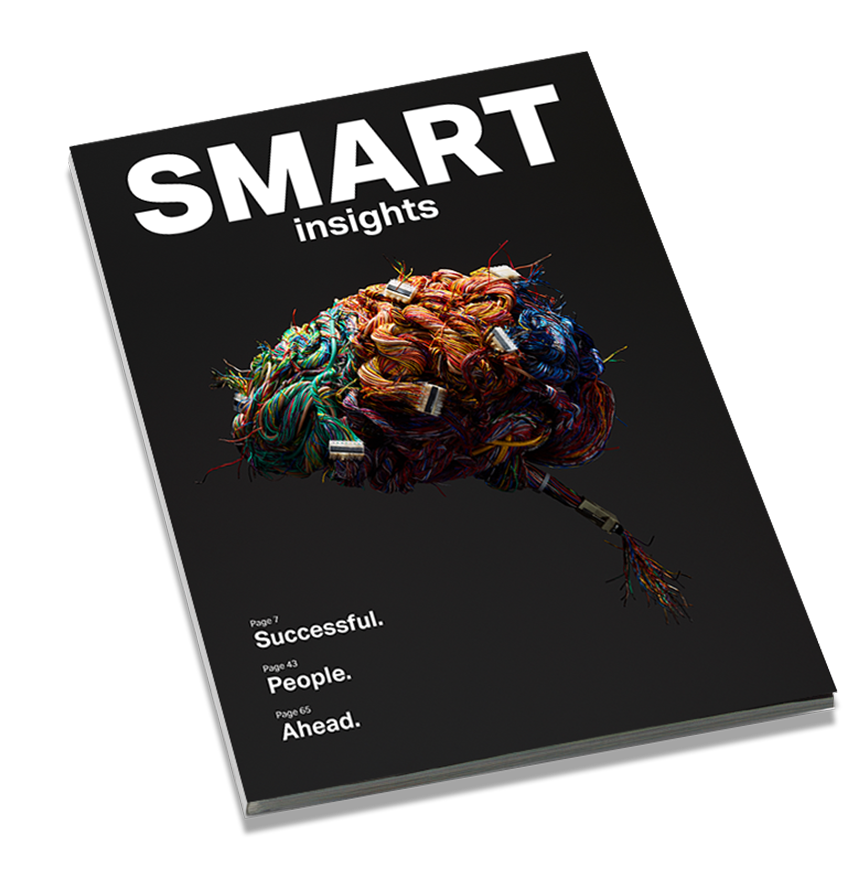This interview was published in the Ergon Magazine SMART insights 2019. Order your free copy now ->
Paying your bills without e-banking? These days, it’s unthinkable. The first e-banking system in Switzerland was developed by Ergon over 20 years ago. Thomas Ward was the pioneer and driving force on the team back then. He has since specialised in software solutions for banks and found his true calling.
How did you find your way to Ergon?
I knew Michael Frass and Gabi Keller, who work at Ergon – we were students together. But, strictly speaking, the real reason was Solaris, the Unix operating system you can develop code on.
After university I worked at a consulting outfit for two years, but that wasn’t hands-on enough for me. I do talk a lot, but I like doing a lot too. (laughs)
So, in 1995, I became the 13th person to join Ergon.
The internet was just getting started back then, wasn’t it? What were your first projects?
Java had just arrived back then and I was programming in-browser applets – initially for Sales, so they could show customers what was possible. I made one for Migros, for example: you could select a colour for an image of a dress in the browser and the applet would work it out automatically. Sounds ridiculous nowadays, I know. (laughs)
You are seen as "Mr. e-banking" these days. How did that come about?
The first project in this field back in the day was e-banking for Credit Suisse – in fact, this was the first e-banking system in Switzerland. Before that, there had been the version with video text, but the dial-up procedure and navigation on the pages wasn’t exactly easy for the non-technically-minded, so we transferred the whole thing to the internet. Put simply, we stripped out the data from the video text and placed it in a browser as a mirror image, as it were. The first prototype was a giant hack.
And what was the next step?
We developed later versions, of course, and then there was youtrade as well, the first online trader. I must have worked for CS for 15 years, and I worked for LLB as well. We built an e-banking platform for them too, and after that, I worked up the basic system for Avaloq online banking. I also spend a lot of time on-site with the customer – I spent six years with Avaloq, for example – and I’m currently over at Finnova. So, it’s case of spending a few days there and a few days at Ergon.
Do you find that OK?
Yes, it brings a lot of variety to the job and I really like how I get to know several different companies. I certainly appreciate what I have with Ergon. It’s a bit like going on holiday – when you start to think Switzerland is a bit boring, you go off somewhere else and discover that it’s actually rather nice here. (laughs)
Have you always had this fascination for banking?
Actually, that all came about on the job. When I started, I didn’t have a clue about banking. But you are always learning something new, of course – it began with payments, the various different paying-in slips and deposits, and then the trading business. The deeper you get into the work, the more fascinated you get. When I was developing the trading software, I suddenly thought, hey, I want an account like that as well, I want to be involved. And over the years – by osmosis almost – you turn into something of an expert in the field.
And on the technical front?
Naturally, things are constantly evolving – and I enjoy that. I have always made sure that I’m involved in projects featuring the latest developments, especially new technologies.
And you like to feed in your own new things – as you did with the first e-banking system, for example?
Yes, I think that’s also the neat thing about Ergon – I have an opportunity to do precisely that. If I have an idea, I can throw it into the mix. I’ve got to make a convincing case for it, mind you. You don’t get anything for nothing. In our company, it would be rare for the boss to drop by and say: "Look – I’ve got a scheme here, get cracking on it." Rather, I can go in and say: "I have a feeling that this is the technology of the future and we might be able to do something with it." If the business case is right, the chances are good that I will also be able to convince the Executive Board.
This interview is part of the series "Entrepreneurs in our midst" in SMART insights 2019. You can find an overview with all interviews here.
Interested in more?
Digitisation projects
Change makers
Tech trends
Order now
